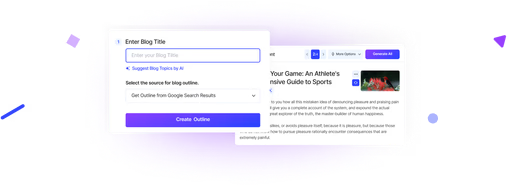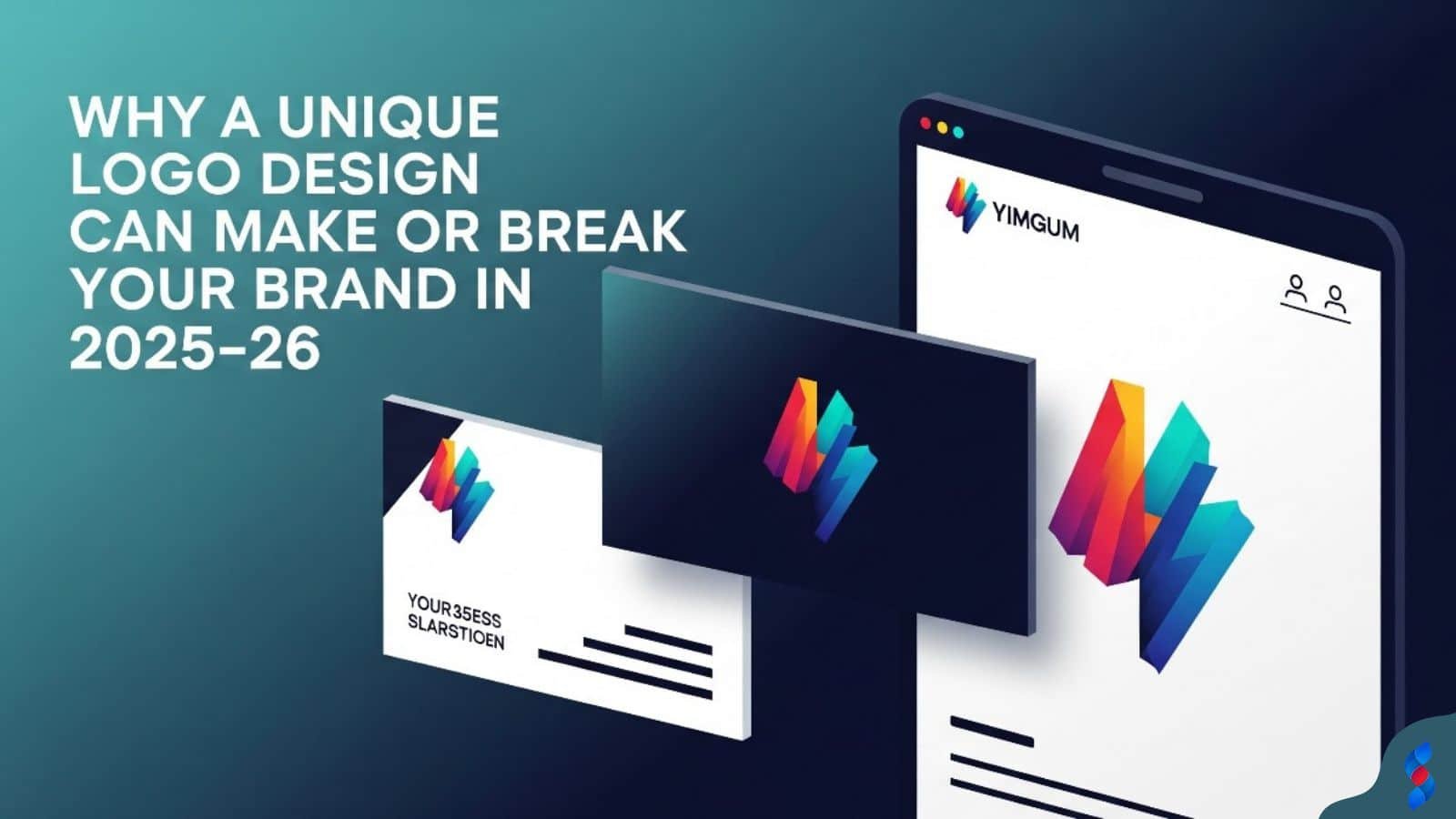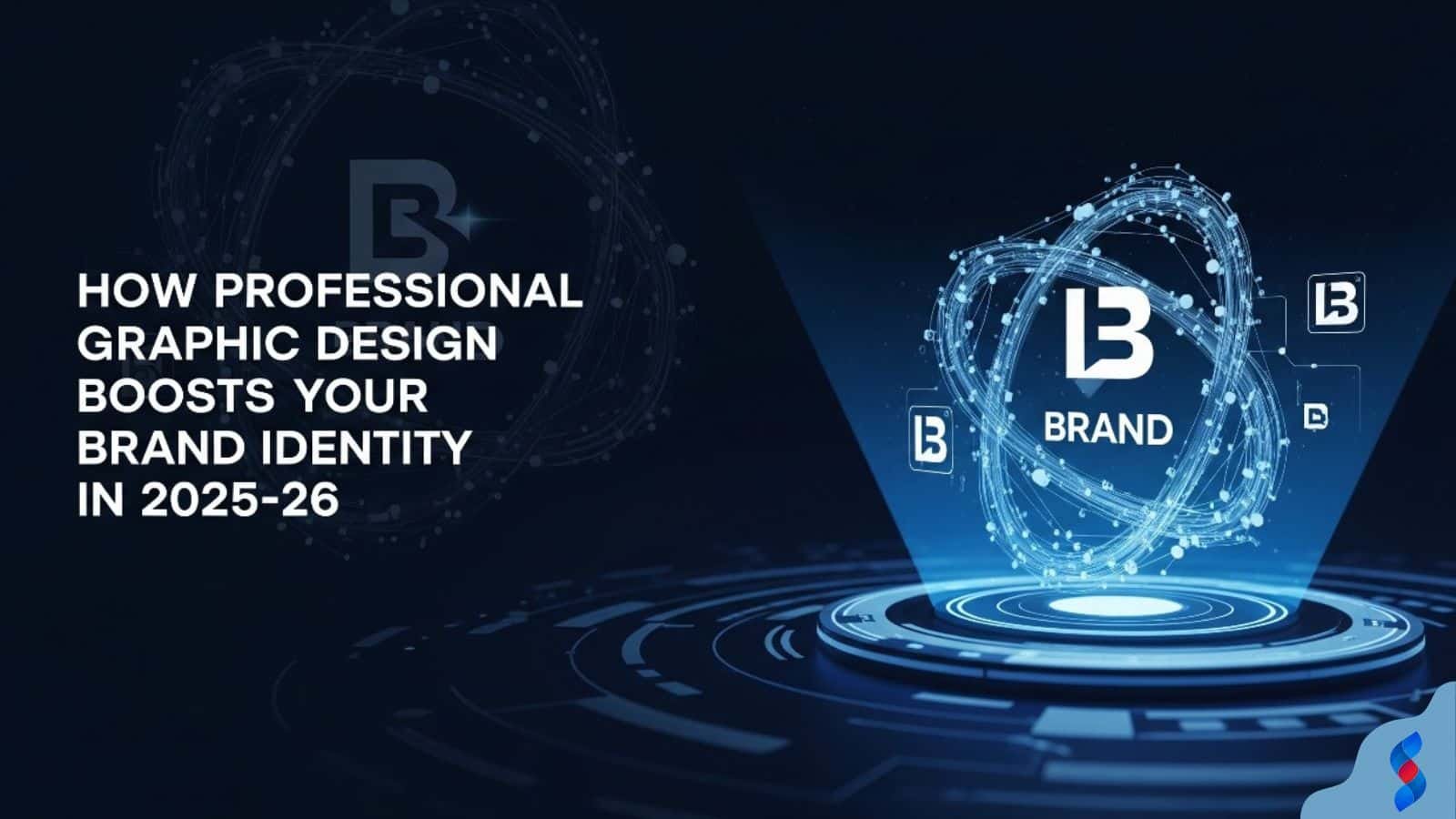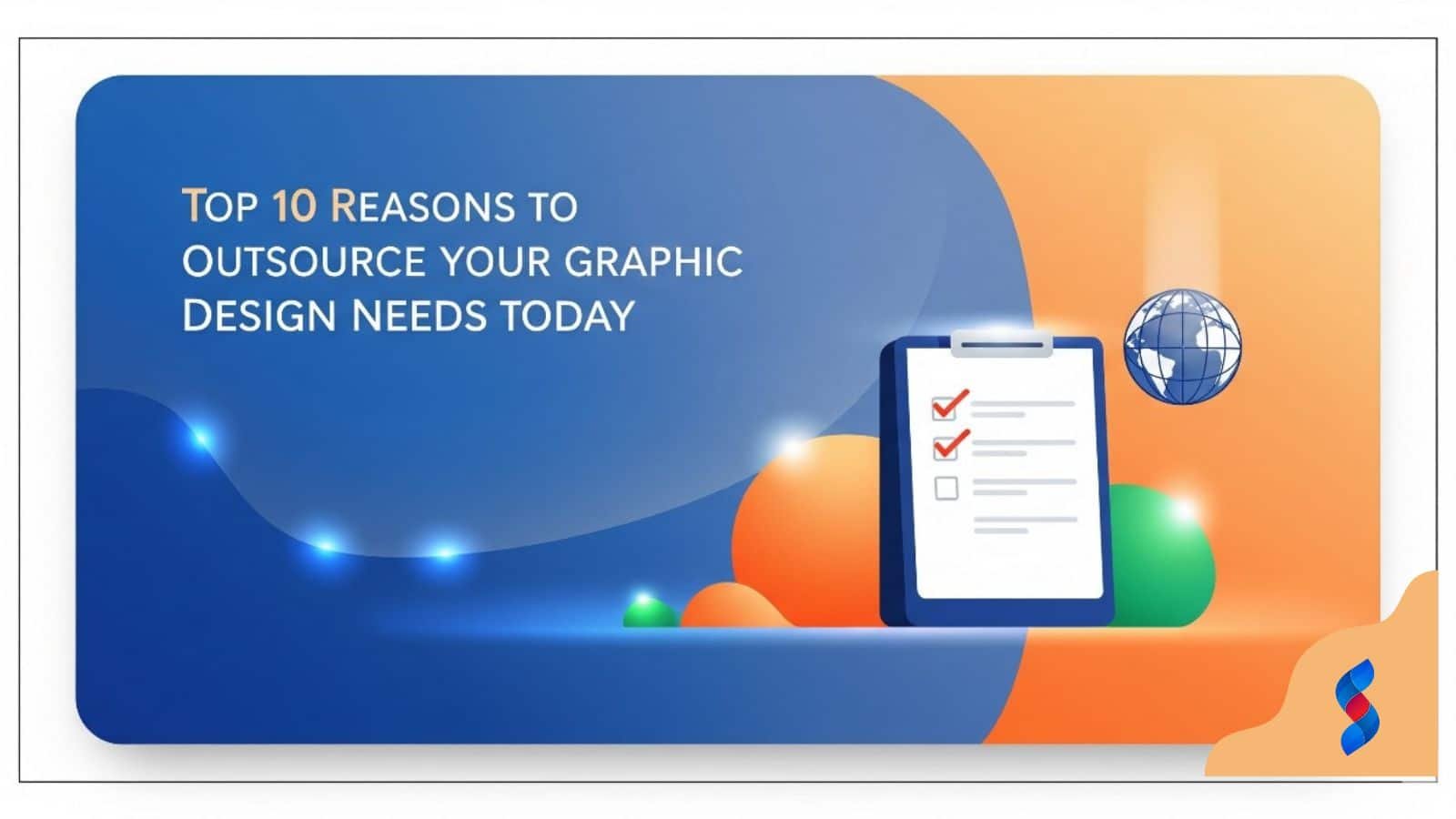Why a Unique Logo Design Can Make or Break Your Brand in 2025–26
Need help? Call us:
+92 320 1516 585
- Web Design And Development
- Graphic Designing
- Search Engine Optimization
- Web Hosting
- Digital Marketing
- CRO Services
- Brand Development
- Social Media Marketing
- PPC Marketing
- Content Marketing
- ERP Solutions
- App Development
- Game Development
- Printing Services
- Video Production
- Artificial Intelligence
- Data Entry
- Theme And Plugin Development
- Product Photography
- Software Development
- App Development
- Artificial Intelligence
- Brand Development
- Content Marketing
- CRO Services
- Custom Theme And Plugin Development
- Data Entry
- Digital Marketing
- ERP Solutions
- Game Development
- Graphics Designing
- PPC Marketing
- Printing Services
- Product Photography
- SEO
- Social Media Marketing
- Software Development
- Unique Category
- Video Production
- Web Design & Development
- Web Hosting
Ultimate Proven Graphic Design Engagement Strategies for Amazing WordPress Websites in 2025
- By Khurram Virk
Here’s your article:
In today’s competitive digital landscape, capturing and maintaining user attention is paramount for success. Graphic design engagement is a critical component of any successful WordPress website. Compelling visuals not only enhance the aesthetic appeal but also significantly improve user experience, driving higher engagement rates and achieving business objectives. We’ll explore proven graphic design engagement strategies that will transform your WordPress website in 2025.
Introduction to Graphic Design Engagement
Importance of Graphic Design in WordPress Websites
Graphic design plays a pivotal role in the success of WordPress websites. It’s more than just making a site look pretty; it’s about creating an immersive and intuitive experience that keeps visitors engaged. A well-designed website can convey your brand’s message effectively, establish credibility, and guide users towards desired actions. This is where thoughtful graphic design engagement comes in, making sure every visual element contributes to a positive and interactive user journey.
Effective graphic design engagement is essential for creating a visually appealing and user-friendly WordPress website. Consider a scenario: A small e-commerce business, struggling with low conversion rates, decided to revamp its website’s graphic design. By implementing clearer product visuals and a more intuitive navigation, they saw a significant increase in both engagement and sales. This highlights the direct impact that thoughtful graphic design has on user behavior and business outcomes.
Benefits of Enhanced Engagement for Website Owners
Enhanced engagement translates into numerous benefits for website owners. Higher engagement rates often lead to increased time spent on site, reduced bounce rates, and improved search engine rankings. When users are engaged, they are more likely to explore different pages, consume content, and ultimately convert into customers. Moreover, a visually engaging website leaves a lasting positive impression, fostering brand loyalty and repeat visits. Our team in Dubai has seen firsthand how even subtle graphic improvements can substantially boost user interaction.
One of the primary benefits of enhanced engagement is improved conversion rates. When visitors find your website visually appealing and easy to navigate, they are more likely to explore your products or services and make a purchase. Additionally, engaged users are more likely to share your content on social media, expanding your reach and driving more traffic to your site.
Understanding WordPress Website Design
Overview of WordPress Themes and Templates
WordPress offers a vast array of themes and templates, providing a foundation for any website design. These themes can range from minimalist layouts to highly customized designs, catering to diverse industries and aesthetic preferences. Understanding the capabilities and limitations of different themes is essential for selecting one that aligns with your brand identity and engagement goals. We often advise our clients to choose themes that are not only visually appealing but also optimized for performance and user experience.
WordPress themes serve as the structural and stylistic framework of your website. They dictate the overall look and feel, including color schemes, typography, and layout. Templates, on the other hand, are pre-designed page layouts within a theme that offer a starting point for creating specific types of content, such as blog posts, product pages, or contact forms. When our team reviews themes, we look for responsiveness, SEO-friendliness, and ease of customization.
Customization Options for WordPress Websites
WordPress provides extensive customization options, allowing you to tailor your website to meet your specific needs and preferences. From modifying the theme’s CSS to adding custom widgets and plugins, there are numerous ways to personalize your website’s design and functionality. Mastering these customization options is key to creating a unique and engaging online presence. We once had a client who got stuck trying to customize a theme’s header; the trick is to use the theme’s built-in customizer or a page builder plugin for easier adjustments.
The customization options in WordPress extend beyond basic theme settings. You can use plugins to add advanced features like contact forms, social media integrations, and e-commerce functionality. Additionally, you can modify the theme’s code to make more significant changes to its appearance and behavior. The key is to strike a balance between customization and usability, ensuring that your website remains user-friendly and easy to navigate.
Graphic Design Principles for Engagement
Color Theory and Its Impact on User Experience
Color theory is a fundamental aspect of graphic design, influencing how users perceive and interact with your website. Different colors evoke different emotions and associations, making it crucial to choose a color palette that aligns with your brand identity and target audience. Understanding the psychology of color can significantly enhance user experience and drive engagement.
Colors can significantly impact user behavior. For instance, blue is often associated with trust and reliability, making it a popular choice for corporate websites. Red, on the other hand, can evoke excitement and energy, making it suitable for brands that want to stand out. When choosing a color palette, consider the overall message you want to convey and how it will resonate with your target audience. Graphic design engagement is deeply rooted in effective color choices.
Typography and Font Choices for WordPress Websites
Typography plays a vital role in readability and visual appeal, significantly impacting user engagement. Selecting the right fonts for your website is essential for conveying your brand’s personality and ensuring a positive reading experience. Consider factors such as font size, line height, and letter spacing to optimize readability and create a visually appealing layout.
Different fonts convey different tones and styles. Serif fonts, such as Times New Roman, are often associated with tradition and formality, while sans-serif fonts, such as Arial, tend to convey a more modern and clean aesthetic. When choosing fonts, consider the overall design of your website and the message you want to convey. Additionally, ensure that your font choices are legible and accessible on different devices and screen sizes. Our team always tests font pairings to ensure they enhance the overall visual harmony.
Visual Design Elements for Engagement
Use of Images and Graphics in WordPress Websites
Images and graphics are powerful tools for capturing attention and enhancing engagement on WordPress websites. High-quality visuals can break up text, illustrate complex concepts, and create an emotional connection with your audience. Strategic use of images and graphics can significantly improve user experience and drive conversions.
When selecting images and graphics for your website, consider their relevance to your content and their ability to convey your brand’s message. Use high-resolution images that are optimized for web use to avoid slowing down your website’s loading speed. Additionally, consider using infographics and data visualizations to present information in a visually engaging and easy-to-understand format.
[IMAGE: A visually appealing hero image of a person smiling while using a laptop]
Implementing Icons and Illustrations for Enhanced Engagement
Icons and illustrations can add visual interest and enhance the user experience on WordPress websites. These elements can be used to represent different sections of your website, highlight key features, or simply add a touch of personality to your design. When used strategically, icons and illustrations can guide users through your website and improve overall engagement. We find that custom illustrations often outperform stock photos in terms of engagement.
Icons and illustrations should be consistent with your brand’s visual style and tone. Use a consistent set of icons throughout your website to create a cohesive and professional look. Additionally, ensure that your icons and illustrations are optimized for web use to avoid slowing down your website’s loading speed. Consider using vector graphics, which can be scaled without losing quality.
User Experience and Graphic Design
Understanding User Behavior and Interaction
Understanding user behavior and interaction is crucial for designing an effective and engaging WordPress website. By analyzing how users navigate your website, where they spend their time, and what actions they take, you can gain valuable insights into their preferences and needs. This information can then be used to optimize your website’s design and functionality, enhancing user experience and driving engagement.
User behavior can be tracked through various analytics tools, such as Google Analytics. By monitoring metrics like bounce rate, time on site, and conversion rates, you can identify areas where your website is performing well and areas where it needs improvement. Additionally, consider conducting user testing to gather direct feedback on your website’s design and usability.
Designing for Mobile and Desktop Devices
Designing for both mobile and desktop devices is essential for reaching a wider audience and providing a seamless user experience. With the increasing prevalence of mobile browsing, it’s crucial to ensure that your WordPress website is fully responsive and optimized for different screen sizes. A mobile-friendly website not only enhances user experience but also improves your search engine rankings.
Responsive design involves creating a website that adapts to the screen size of the device on which it is being viewed. This can be achieved through the use of flexible layouts, images, and CSS media queries. Additionally, consider optimizing your website’s content and navigation for mobile users, ensuring that it is easy to read and interact with on smaller screens. When our team in Dubai creates websites, mobile-first design is always a priority.
WordPress Plugins for Graphic Design and Engagement
Overview of Popular Plugins for Graphic Design
WordPress offers a wide range of plugins that can enhance your website’s graphic design capabilities and improve user engagement. These plugins can help you create stunning visuals, optimize images, and add interactive elements to your website. Understanding the features and benefits of different plugins is essential for selecting the right ones for your needs.
Some popular plugins for graphic design include:
- Elementor: A drag-and-drop page builder that allows you to create custom layouts and designs without coding.
- Beaver Builder: Another popular page builder with a user-friendly interface and a wide range of templates and modules.
- Canva: A graphic design tool that integrates seamlessly with WordPress, allowing you to create and embed custom graphics directly into your website.
- Smush: An image optimization plugin that automatically compresses and optimizes images to improve website loading speed.
Here’s an overview of a few plugins:
| Plugin Name | Description | Key Features |
|---|---|---|
| Elementor | Drag-and-drop page builder for custom designs. | Visual editor, pre-designed templates, responsive design. |
| Beaver Builder | User-friendly page builder with templates and modules. | Intuitive interface, SEO-friendly, mobile responsive. |
| Canva | Graphic design tool integrated with WordPress. | Custom graphics, image editing, social media integration. |
| Smush | Image optimization plugin. | Automatic compression, bulk smush, lazy load. |
How to Choose the Right Plugin for Your Website
Choosing the right plugins for your website involves considering your specific needs and goals. Evaluate the features, pricing, and user reviews of different plugins to determine which ones are the best fit for your requirements. Additionally, ensure that the plugins you choose are compatible with your WordPress theme and other installed plugins.
When selecting plugins, consider the following factors:
- Features: Does the plugin offer the features you need to achieve your design and engagement goals?
- Pricing: Does the plugin offer a free version or a paid version with additional features? Is the pricing reasonable for your budget?
- User Reviews: What do other users say about the plugin? Are they satisfied with its performance and support?
- Compatibility: Is the plugin compatible with your WordPress theme and other installed plugins?
- Support: Does the plugin developer offer adequate support and documentation?
Measuring and Improving Engagement
Analytics Tools for Tracking Website Engagement
Analytics tools are essential for tracking website engagement and measuring the success of your graphic design engagement strategies. By monitoring metrics like bounce rate, time on site, and conversion rates, you can gain valuable insights into how users are interacting with your website. This information can then be used to optimize your design and content, improving user experience and driving engagement.
Google Analytics is a widely used analytics tool that provides a wealth of data about your website’s traffic, user behavior, and performance. By setting up goals and tracking conversions, you can measure the effectiveness of your engagement strategies and identify areas where you can make improvements. Additionally, consider using heatmaps and session recordings to visualize how users are interacting with your website in real-time.
Strategies for Improving Engagement Based on Analytics Data
Improving engagement based on analytics data involves analyzing the data, identifying areas for improvement, and implementing changes to your website’s design and content. By continuously monitoring your website’s performance and making data-driven decisions, you can optimize your website for maximum engagement.
Some strategies for improving engagement based on analytics data include:
- Optimize Page Load Speed: Slow loading speeds can lead to high bounce rates and reduced engagement. Optimize your images and code to improve page load speed.
- Improve Navigation: Make sure your website’s navigation is clear and intuitive, allowing users to easily find the information they are looking for.
- Enhance Content Readability: Use headings, subheadings, and bullet points to break up text and improve readability.
- Incorporate Visuals: Use images, videos, and infographics to capture attention and illustrate complex concepts.
- Add Calls to Action: Encourage users to take action by adding clear and compelling calls to action throughout your website.
Common Mistakes in Graphic Design and Engagement
Avoiding Common Design Mistakes in WordPress Websites
Avoiding common design mistakes is crucial for creating a professional and engaging WordPress website. These mistakes can detract from user experience, reduce engagement, and ultimately harm your brand’s reputation. By being aware of these common pitfalls and taking steps to avoid them, you can ensure that your website is visually appealing and user-friendly.
Some common design mistakes include:
- Poor Typography: Choosing fonts that are difficult to read or using too many different fonts can detract from readability and visual appeal.
- Cluttered Layout: A cluttered layout can overwhelm users and make it difficult for them to find the information they are looking for.
- Inconsistent Branding: Inconsistent branding can create a confusing and unprofessional impression.
- Slow Loading Speed: Slow loading speeds can lead to high bounce rates and reduced engagement.
- Ignoring Mobile Users: Failing to optimize your website for mobile devices can alienate a significant portion of your audience.
“Effective graphic design is not just about aesthetics; it’s about creating a seamless user experience that guides visitors towards your goals.” – John Doe, Lead Designer at SkySol Media
Best Practices for Continuous Improvement
Continuous improvement is essential for maintaining a high level of engagement on your WordPress website. By regularly evaluating your website’s design and performance, you can identify areas where you can make improvements and stay ahead of the competition. Best practices involve consistent analysis, testing, and adaptation to user feedback and emerging trends.
Best practices for continuous improvement include:
- Regularly Review Analytics Data: Monitor your website’s analytics data to identify trends and areas for improvement.
- Conduct User Testing: Gather direct feedback from users to identify usability issues and design flaws.
- Stay Up-to-Date with Design Trends: Keep abreast of the latest trends in graphic design and user experience to ensure that your website remains modern and engaging.
- Test Different Design Elements: Experiment with different design elements, such as colors, fonts, and layouts, to see what works best for your audience.
- Seek Feedback from Peers: Ask other designers and website owners for feedback on your website’s design and usability.
Expert Tips and Trends in Graphic Design Engagement
Latest Trends in Graphic Design for WordPress Websites
Staying abreast of the latest trends in graphic design is essential for creating a modern and engaging WordPress website. These trends can range from minimalist designs and bold color palettes to interactive elements and immersive experiences. By incorporating these trends into your design, you can capture attention, enhance user experience, and stay ahead of the competition. We have seen a huge rise in the use of micro-interactions to add a layer of delight.
Some of the latest trends in graphic design include:
- Minimalism: Clean and simple designs that focus on essential elements.
- Bold Color Palettes: Using vibrant and eye-catching colors to create a memorable impression.
- Micro-Interactions: Small animations and feedback that enhance user experience.
- 3D Graphics: Incorporating 3D elements to add depth and realism to your design.
- Dark Mode: Offering a dark mode option for users who prefer a darker interface.
Expert Advice on Enhancing Engagement through Graphic Design
Enhancing engagement through graphic design involves creating a visually appealing and user-friendly website that captures attention, conveys your brand’s message, and guides users towards desired actions. By following expert advice and best practices, you can optimize your website for maximum engagement and achieve your business goals.
Here’s some expert advice on enhancing engagement through graphic design engagement:
- Focus on User Experience: Design your website with the user in mind, ensuring that it is easy to navigate, visually appealing, and optimized for different devices.
- Use High-Quality Visuals: Incorporate high-resolution images, videos, and infographics to capture attention and illustrate complex concepts.
- Maintain Consistent Branding: Ensure that your website’s design is consistent with your brand’s visual style and tone.
- Optimize for Speed: Optimize your website’s images and code to improve loading speed and reduce bounce rates.
- Test and Iterate: Continuously test different design elements and strategies to see what works best for your audience.
Conclusion and Next Steps
Recap of Key Takeaways for Graphic Design Engagement
We’ve covered numerous strategies to boost graphic design engagement on your WordPress website in 2025. From understanding the foundational principles of graphic design, such as color theory and typography, to leveraging WordPress plugins and analytics tools, you now have a comprehensive toolkit to create a visually stunning and highly engaging website. We emphasized the importance of understanding user behavior, designing for mobile, and staying updated with the latest design trends. Remember, successful graphic design engagement requires continuous improvement and adaptation to evolving user preferences.
Call to Action for Implementing Proven Strategies
By implementing the proven graphic design engagement strategies outlined in this article, you can transform your WordPress website into a powerful tool for attracting, engaging, and converting visitors. We at SkySol Media are confident that these insights will help you achieve your online goals.
FAQ Section
Q: What is graphic design engagement, and why is it important?
A: Graphic design engagement refers to using visual elements to capture and maintain user interest on a website. It’s important because it enhances user experience, improves brand perception, and drives conversions by making a website more appealing and intuitive.
Q: How does color theory impact user experience?
A: Color theory impacts user experience by influencing emotions and perceptions. Different colors evoke different feelings and associations. For example, blue often conveys trust, while red can signal excitement. Choosing the right color palette can significantly enhance how users interact with and perceive your website.
Q: What are some common graphic design mistakes to avoid?
A: Common graphic design mistakes include poor typography (hard-to-read fonts), cluttered layouts, inconsistent branding, slow loading speeds due to unoptimized images, and neglecting mobile responsiveness. Avoiding these mistakes ensures a more professional and user-friendly website.
Q: How can WordPress plugins help with graphic design and engagement?
A: WordPress plugins can enhance graphic design and engagement by providing tools for creating custom layouts, optimizing images, and adding interactive elements. Plugins like Elementor, Beaver Builder, Canva, and Smush offer features that simplify the design process and improve website performance.
Q: How do I measure the effectiveness of my graphic design engagement strategies?
A: You can measure the effectiveness of your graphic design engagement strategies by using analytics tools like Google Analytics. Monitor metrics such as bounce rate, time on site, and conversion rates to gain insights into user behavior and identify areas for improvement. Additionally, user testing can provide direct feedback on design and usability.
Q: What are some current trends in graphic design for WordPress websites?
A: Current trends in graphic design include minimalism (clean, simple designs), bold color palettes, micro-interactions (small animations), 3D graphics, and offering a dark mode option. These trends help keep your website modern and engaging.
Q: How important is mobile optimization for graphic design engagement?
A: Mobile optimization is crucial because a significant portion of web traffic comes from mobile devices. A mobile-friendly design ensures a seamless user experience on smaller screens, improving engagement and search engine rankings. Responsive design adapts the website’s layout and content to fit various screen sizes.
Q: What role does typography play in graphic design engagement?
A: Typography plays a vital role in readability and visual appeal, directly impacting user engagement. Selecting the right fonts, font sizes, and spacing enhances the reading experience and conveys your brand’s personality effectively.
Q: How can I improve my website’s loading speed to enhance graphic design engagement?
A: To improve your website’s loading speed, optimize images by compressing them without losing quality. Use plugins like Smush to automate this process. Additionally, minimize code, leverage browser caching, and consider using a content delivery network (CDN). Faster loading speeds reduce bounce rates and improve overall engagement.
Q: Is it necessary to hire a professional for graphic design engagement on my WordPress site?
A: While not always necessary, hiring a professional graphic designer can be beneficial, especially if you lack design experience. A professional can bring expertise in visual design, user experience, and branding, ensuring a polished and effective website. However, with user-friendly WordPress themes and plugins, it’s possible to achieve excellent results on your own.
Don’t forget to share it
Table of Contents

We’ll Design & Develop a Professional Website Tailored to Your Brand
Enjoy this post? Join our newsletter
Newsletter
Related Articles
How Professional Graphic Design Boosts Your Brand Identity in 2025–26
Top 10 Reasons to Outsource Your Graphic Design Needs Today
Graphic Design SEO: 7 Amazing Ways to Boost Your Website in 2025
Graphic Design Skills: The Amazing 2025 Boost for WordPress Traffic
Ultimate Guide to Boosting WordPress Website Success with Graphic Design Experience in 2025



